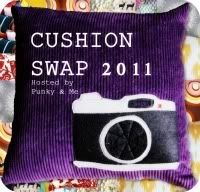Thanks for the great response to the
first post in this business series. Part two is all about paperwork and other related formal “thingo’s” (thanks,
Jodie). First of all, just so we’re all clear - please check with someone fully qualified before you make any major decisions, and, my business is based in Victoria, Australia, so most of the links are appropriate for this state/country. Use some of the key words to google similar websites and services where you are.
There are a few decisions and forms needed to turn your hobby into a business. This is what I did ...
Decide on a business structure – most opt for being a sole trader (I did - it's simple and I can still employ people down the track if I want to), but there are more to choose from
here.
Register a business name – decide on a name, then check here to see if it’s already taken
here. Once you have a name, register it
here. It’s such a great moment when you get your Certificate of Registration of Business Name - it’s all yours! TIP - you might also want to check website domain names before you register to see if your business name idea is available - not essential, but handy for marketing later on if everything is the same.
Get an Australian Business Number (ABN) – from
here. This is how everyone (the government, other businesses, customers) know that you are a business.
Get some business insurance – you need public liability and product liability as a minimum, but it’s worthwhile insuring any capital items (e.g. sewing machine) and stock (e.g. fabric) for theft and fire (and other “defined events” ... flooding is a good one to have!). If you're working from home, don’t assume that your home and contents insurance policy will cover everything - call and check. Also, ring around and get a few quotes – they do vary a bit in price and comprehensiveness.
Decide if you’re going to resister for Goods and Services Tax (GST). If your business makes less than $75,000 per financial year, you are not required to register – that’s most of us! However, the benefit of registering, even if you don’t make that much, is that you can claim back the GST on purchases for your business. It might be worth it for you if you buy a lot of supplies for your business (e.g. fabric) - the downside is that you need add GST to your prices, and do a quarterly Business Activity Statement (BAS) to claim back the GST (not actually that hard, and pretty handy for keeping track of finances). Everything you ever wanted to know about the GST (and more)
here.
Access resources - there are lots of places that you can get help with the paperwork/formal side of things. The Victorian Government has a great service and website called
Business Victoria. You can access free advisors (e.g. an accountant, lawyer, book keeper, mentor) and find a whole lot of other resources. I used their
advisor service to find an accountant – the first meeting was free, and it was really all I needed to make sure I had everything in order – it was excellent and easy. Also check with your local council – they sometimes have great programs for small business. Don't forget your local library - many are really up to date with reference books, and other good sources of information and inspiration - all for free.
Have some fun - now that you have all of that sorted, you can get down to the real business of doing what you do - making stuff! Think about getting some business cards - I printed my own at the start, but there are lots of online businesses that specialise in this (I use
moo). Also, why not start a blog and record your journey - it's free, fun and very helpful.
Get an online shop - once you've been making things for a while, you might want to think about selling online. There are a number of online marketplaces that are useful to start with as they allow you (for very minimal cost) to get some feedback on your products and hopefully make some sales -
Etsy (global - based in the US);
Made It (Australian); and
Oz Handmade (Australian) to name a few. Or, you could open your own little online store using a dedicated shopping cart (I use
Big Cartel, but there are many more to choose from).
I hope this has been useful, and hasn’t bored you to tears! Good luck to those of you out there thinking about giving small business a go.
P.S. I've had several requests about books - if you keep scrolling down my sidebar, you will come across my booklist - including the ones I mentioned in the last business post. Happy reading!




































































